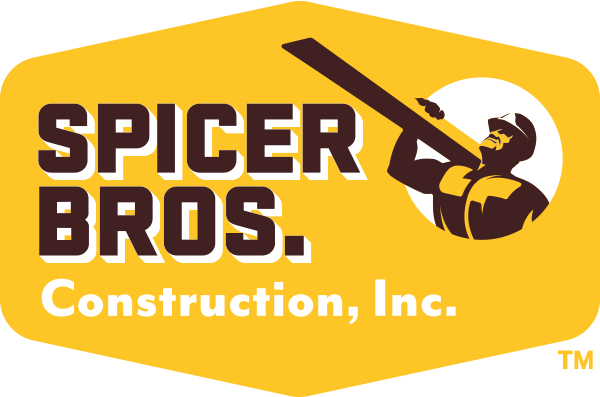When deciding what kind of roof to install, knowledge regarding roof pitch is important. Roof pitch is a primary factor that determines the type of roofing material that would be appropriate for your home. In today’s post, your trusted roofing contractors from Spicer Bros. Construction share the key things you need to know about roof pitch.

Role of Roof Pitch
Roof pitch is a calculation of how elevated your roof is. Roof pitch is written like a fraction, such as 3/12 or 1/12. The first number, or numerator, determines the vertical height of the roof, and the denominator dictates the length.
A flat roof design doesn’t appear to have an incline, but it does have a slight pitch to enable it to drain water. Slightly inclined roofs are known as low-slope roofs, which are elevated to provide better protection against water and debris. A qualified roofing company will be able to tell you which materials would work with a particular pitch.
Roof Materials
Your roof pitch will determine what kind of materials are allowed for use on your roof. For example, asphalt or composite can be used on a roof with a pitch as low as 4/12, but you can only use wood shakes or slate at around 5/12. Other products can only be used under a certain incline; e.g., standing seam metal can only be used from 1/12 to 3/12.
Each roofing material has attributes to protect your roof from debris and water damage. For low or even flat slopes, for example, bitumen is preferred, as it’s easier to apply and comes in different colors.
Spicer Bros. Construction is here to make your roofing project a breeze, as we provide the best materials and services to meet your needs. Contact us at (410) 546-1190 in Salisbury and Ocean City, MD.







